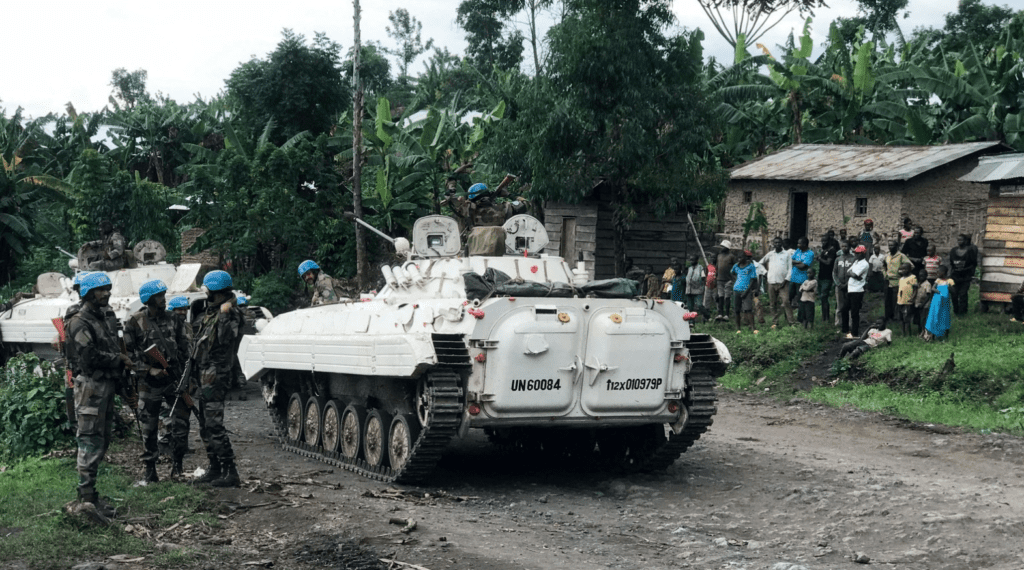The Democratic Republic of Congo (DRC) blocked East African Community (EAC) observers from setting foot in the mineral-rich country to observe the presidential elections.
The polls are scheduled for December 20. EAC said Monday that DRC, which is a member of the block had not approved their request to observe the polls.
The DRC however had allowed Africa Union and Southern African Development Community observers to participate in the polls raising tensions between the country and the regional block.
“This is to notify the EAC Partner States, Development Partners, and all other Stakeholders that EAC will not physically be present in DRC to observe her 2023 General Elections as provided for in the Treaty Establishing the East African Community and as it has been the practice since the inception of the EAC.”
“This development is due to the fact that although EAC was ready, the request to undertake the exercise has not been granted by the relevant authorities,” said the regional bloc in a statement.
“The EAC wishes the Government and the people of DRC peaceful elections and remains committed to discharge our mandate to all Partner States.”
The DRC will hold general elections on Wednesday, December 20, 2023, for president of the Republic and national and provincial assembly and municipal positions.
It remains unclear why the government of President Felix Tshisekedi restricted EAC from observing the election.
The development comes just weeks after Kinshasa refused to renew the mandate of the East African Community Regional Force (EACRF) which was deployed to stabilize the eastern part of the country.
Tshisekedi accused EACRF of being inactive and looking on idly as M23 rebels captured territory and engaged in new battles with Congolese soldiers.
Despite being a new member of EAC, Congo’s heart appears to be elsewhere. It joined the EAC in 2022.
This is the first election since the 2018 elections, when former President Joseph Kabila stepped down and Tshisekedi assumed the presidency, allowing for the first peaceful transition of power in DRC history.
Since then, several amendments have been introduced to the electoral legal framework, including those that support the increased engagement of women, youth, persons with disabilities, and other marginalized groups across all aspects of the electoral process.
More than 40 million voters in DRC and the diaspora will vote to fill 1,511 seats from a selection of more than 100,000 candidates.
Observers say the 2023 general elections are an opportunity for the DRC to test the stability of its democratic processes.
The polls come against the backdrop of a bloody conflict in North Kivu where government forces have been battling M23 rebels.
At least six candidates, including former Prime Minister Augustin Matata Ponyo, have withdrawn from the presidential race.
Voters will on Wednesday choose their president from 20 candidates including Tshisekedi and his main challengers Martin Fayulu, wealthy businessman and former Katanga province governor, Moïse Katumbi, and Dr Denis Mukwege.
EAC has paid little attention to the presidential election on 20 December in the Democratic Republic of Congo (DRC), one of the regional bloc’s newest members.
The election is not discussed in media or political circles, yet its outcome could arguably have deep implications for the relationship between DRC and its neighbors in the east.
DRC recalled its envoys to Kenya and Tanzania over the polls issues which raised the temperatures.
The European Union announced last month that it was canceling its election observation mission in DRC, citing “technical” reasons.
EU had stated that its election observers who had arrived in the DRC had been unable to “deploy across the country for security reasons”, making their mission “impossible“.
“Due to technical constraints beyond the EU’s control, we are forced to cancel the election observation mission,” said European Union diplomatic service spokeswoman Nabila Massrali in a statement.
She added that essential telecommunications equipment had not been made available to the observers deployed in the country ahead of the December 20 polls.
“The EU encourages the DRC authorities and all stakeholders to continue their efforts to ensure that the Congolese people can fully exercise their legitimate political and civil rights in the forthcoming elections,” added the spokeswoman.
She added that “the EU is examining other options with the Congolese authorities, including the possibility of maintaining a mission of electoral experts to observe the electoral process from the capital”.
The Democratic Republic of Congo is a vast Central African country with a population of almost 100 million. Tshisekedi, 60, is seeking a second term.
Tshisekedi came to power in the last elections in 2018.
At the time, many observers, including representatives of the Catholic Church in the DRC, felt that the elections were marred by irregularities.
This European electoral observation mission, the first in the DRC for over 10 years, was announced in early November by the EU’s head of diplomacy, Josep Borrell.
For almost 30 years, the DRC has been shaken by violence from armed groups in the east of the country, where peacekeeping troops from the UN and the Community of East African States (EAC) are deployed.
The violence is currently peaking with the return of a former rebel movement, the M23 (“March 23 Movement”), supported by neighboring Rwanda, according to numerous sources.
Paraguay Prison Clash Claims 12 Lives In Drug Lord Transfer Operation

